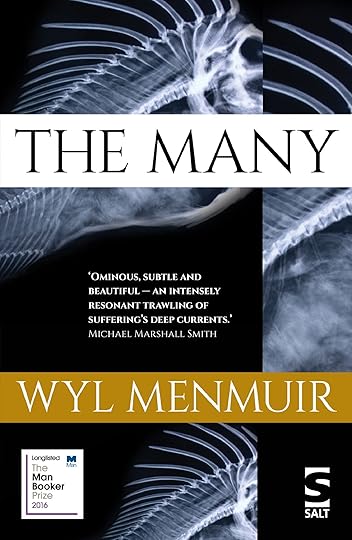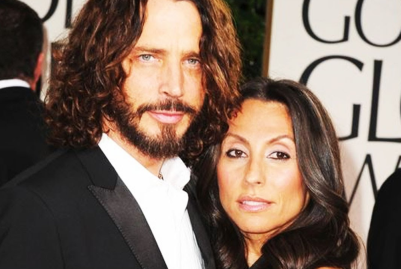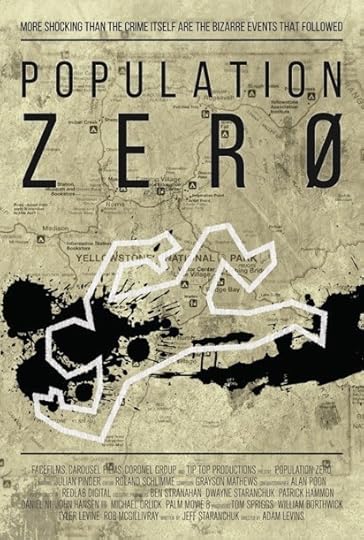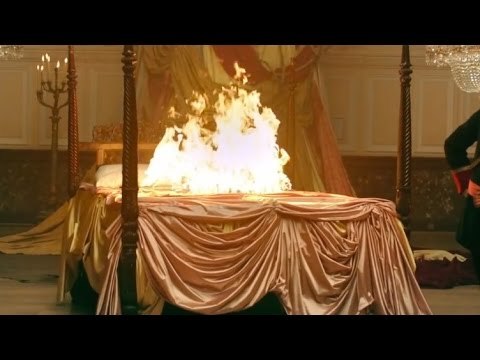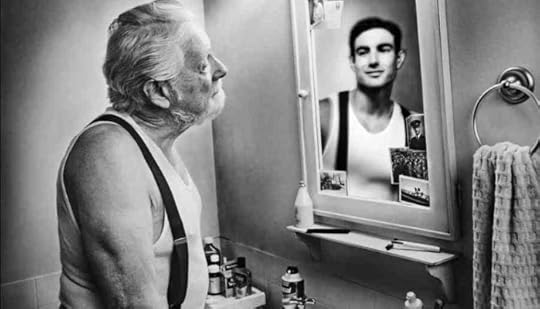Richard Harris's Blog, page 29
May 29, 2017
Writing Your First Book
There was an interesting article in The Guardian a while ago titled “How to finish a novel: tracking a book’s progress from idea to completion.” It’s about a go-getter named Wyl Menmuir and an app he used called WriteTrack (now known as Prolifiko) to keep tabs on his progress/set daily goals over his journey to write – and finish! – his first novel.
The original aim was to complete a 44,242-word book in 124 days.
Before we go on, I have to point out a couple of things. To begin, I first wrote about a similar subject when I created a Page on this site called “Evolution of a Novel.” I described how much changes in the years (plural) it takes most authors to write a novel. I cut and paste a single paragraph, the opening to A Father’s Son, from its inception in 2006 to its completion in 2012 to its published form in 2013, and the differences between drafts is pretty staggering. Why? Because time had passed and I could go in with fresh eyes at each new stage.
The fact that Tolstoy and Ondaatje each only took five years to craft War and Peace and The English Patient, respectively, is insane. Arundhati Roy, who took home the Man Booker Prize in 1997 for her debut novel The God of Small Things, will be releasing her second novel, The Ministry of Utmost Happiness, next month. In case you lost count, that’s 20 years for her follow-up work of fiction.
My own second novel is scheduled to be published next spring. I began the first draft of The Immortal Flower in winter 2001. By the time it comes out, the writing/editing/publishing of that single book will represent 39% of my life. Ouch!
Second, since when did a novel fall under 50,000 words? Doesn’t that get tagged as a “novella” anymore? It’s my understanding that most novels – even in today’s age of hyperconnectivity – fall in the word count range of 80,000 to 100,000 words.
Than again, maybe I’m full of **** and **** because Mr. Menmuir ended up completing his novel in one year, 10 months and two days. In the grand scheme of things, I’d say that’s still pretty fast, especially for someone who’d never finished a full-length novel before.
The real icing on this gravy train of literary sweetness, though? Menmuir not only finished The Many, but he got it published. Amazing. But there’s more! He not only got it published, but he was longlisted for the Man Booker Prize in 2016!
I therefore say to all of you out there who’ve been sitting on an idea for a book for years: Go do it! If you need an app, download it. Otherwise, read The Guardian article I linked to above and then tell yourself, I’ve got nothing to lose and everything to gain. Set aside a single hour a day at first – even 30 minutes in the beginning – and you’ll be amazed at how quickly you may be able to impress even yourself.


May 27, 2017
A Love Letter to a Soulmate
“I’m sorry, my sweet love, that I did not see what happened to you that night, I’m sorry you were alone, and I know that was NOT you, my sweet Christopher. Your children know that too, so you can Rest In Peace. I’m broken, but I will stand up for you and I will take care of our beautiful babies. I will think of you every minute of every day and I will fight for you. You were right when you said we are soul mates. It has been said that paths that have crossed will cross again, and I know that you will come find me, and I will be here waiting.”
Vicky Cornell, upon learning of her husband Chris Cornell’s death (2017)
Singer and once-in-a-generation cultural icon Chris Cornell was laid to rest at Hollywood Forever Cemetery in Los Angeles yesterday. The weather was overcast, ominous, a black hole sun undoubtedly buried deep behind moiling clouds, at what was possibly the largest gathering of Rock Royalty in nearly a quarter century, since Kurt Cobain’s death in 1994. Cornell’s flat marker in the cemetery read “VOICE OF OUR GENERATION AND AN ARTIST FOR ALL TIME.” He was 52 at the time of his death.
As attendees made their way to their seats at the public service, which followed a private one earlier the same day, Audioslave’s “Like a Stone” played on speakers throughout Fairbanks Lawn. Fellow Audioslave bandmate Tom Morello was one of several people to deliver a eulogy, saying, “Chris was as melodic as The Beatles, as heavy as Sabbath and as haunting as Edgar Allan Poe. The demons he wrestled with were real, but he harnessed those demons and rode them like a mother-flipping chariot of lightning strapped with Marshall stacks to make some of the greatest rock ‘n’ roll of all time.”
Chris Cornell’s extraordinary range was hardly a secret, but nonetheless continued to impress – no, blow the f****** walls out from around him – every time he took to the stage and opened his mouth. He was one of those vocal freaks of nature that could belt out a song like “Jesus Christ Pose,” have every fan ready to go and wage battle like they were straight out of Braveheart, then hoist himself up on a stool, grab his acoustic guitar and somehow find it in himself to release chthonic demons buried deep inside the abyss of a tired spirit through a heart-wrenching version of “Nothing Compares 2 U.”
For those like me who never knew Chris Cornell personally, we are left to recount memories associated with a person who seemed larger than life much of the time with friends and fellow fans….
…like the time I went to see Soundgarden, Pearl Jam and Neil Young perform at Exhibition Stadium a lifetime ago. The show was over, or so it seemed, when Chris Cornell, Eddie Vedder and the Neiler himself sauntered back to the stage, along with seven guitarists and two drummers from their respective bands. Although the following link isn’t from the same concert, it will give you a sense of the power that overtook 50,000 screaming nutjobs when those three rock legends began singing “Rockin’ in the Free World…”
…like the first time I heard Cornell and Vedder team up to sing “Hunger Strike” and was thunderpunched to the gut, a feeling only relived three years later when The Tragically Hip released Day for Night, and “Nautical Disaster” ruined me; beds were launched out of second-floor windows and refrigerators disposed of from front doors, such was the visceral reaction only select songs like that could evoke…
…like two days ago, flipping through the channels on TV, and stumbling across Singles (1992), a movie I watched approximately 2.3 million times when I was in university. Cameron Crowe’s now-classic film about life in Seattle in the early 1990s was just beginning and all I thought was, Don’t give me Bridget Fonda with her faux “grungewear,” or Matt Dillon with his lame facial hair; give me Layne Staley, Eddie Vedder, Matt Cameron, Kim Thayil, Mike Starr, Ben Shepherd, Sean Kinney, Jerry Cantrell, Jeff Ament, Stone Gossard and, of course, Chris Cornell.
Those who know me, know that I have a voice for the ages. Verily, I never pursued a career in music in a selfless act to allow others far inferior to shine (Matt R.). It was much the same with chess (Joel H.), waterskiing (Dave S.) and playing hockey (Randy M.)
You’re welcome.
Thus, therefore and consequently, I will dedicate this last song to Mr. Cornell from a few some guys who know a thing or two about the man himself and about writing music that effortlessly soars to the heavens, and we, the humble recipients of the ethereal, more inspired human beings as we reel in its wake – Pearl Jam’s “Just Breathe.”
Nothing you would take,
Everything you gave.
Hold me till I die,
Meet you on the other side.


May 26, 2017
Globe Review: ‘Population Zero’
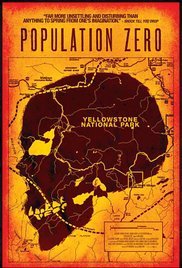
And…the first review is in from Brad Wheeler (@BWheelerglobe) at The Globe and Mail for Population Zero. Congratulations to @TylerLevine and his entire team for putting together a film that is “compelling,” “cleverly told,” and an “earnest cross-genre thriller.”
Population Zero is playing at Carlton Cinema until Thursday, June 1.


Learning to Read & The Brain
Anything to do with the brain, science and reading has me hooked from page one. Yesterday, Torah Kuchar (@DrTorahKachur) did exactly this when she reported through the CBC in a piece called “New research reveals what happens when adults learn to read.”
Obviously – OBVIOUSLY! – the cerebral cortex (learning and high intellectual processes) lights up like a Rockefeller Center Christmas tree when someone is learning to read, but it was scientists didn’t expect that intrigued them:
“The ability to read stimulated deeper, more ancient brain structures like the thalamus that normally functions as a relay point to integrate sensory and motor input and is involved in consciousness and sleep regulation. None of those functions you’d really associate with reading.
What they found was that the ability to read is not unique to humans in that other mammals can distinguish complex written shapes, and we share those brain regions. This doesn’t mean mice can read Tolstoy, but that they have similar brain structures to process complex symbols. What they can’t do, and what we can, is ascribe meaning to those shapes. We use our higher level processing centres in our cortex to do this.”
Ms. Kuchar goes on to discuss how this impacts our understanding of dyslexia (any of various reading disorders associated with impairment of the ability to interpret spatial relationships or to integrate auditory and visual information) and in what way(s) the thalamus may have something to do with its origins.
I’d like to utter a witticism after reading an article like that, perhaps something along the lines of “I f****** love science,” but unfortunately someone already beat me to the punch (line) on that one.


May 25, 2017
TAC: Animating Historic Sites Grants
Individual artists, organizations and collectives, this is your chance to apply for funding from the Toronto Arts Council (@TorontoArts) for its Animating Historic Sites initiative. The deadline is July 17, 2017 and may cover up to 100% of project costs. Click on the previous link to download full program guidelines and view past recipients.
Per the TAC website:
Toronto Arts Council has partnered with City of Toronto Museum Services and the Evergreen Brick Works to provide opportunities for artists to re-imagine and animate six Toronto Heritage sites and the Brick Works through engagement with their histories, local contexts, and communities.
TAC has two distinct funding envelopes: 1) Arts Discipline funding (e.g. discipline-specific project grants and operating grants) and 2) Strategic funding (e.g. Animating Historic Sites, Animating Toronto Parks, Artists in the Library, etc.). Applicants are eligible to receive only one grant from each funding envelope per calendar year. Applications to the Animating Historic Sites program fall within the Strategic Funding envelope. Any other Strategic Program grants must be complete with a final report filed and approved to meet eligibility criteria. (*Please note: Newcomer and Refugee Artist Mentorship grants do not fall under the category of Strategic funding).


Quote of the Day

“[M]y fear is that when we die, we’ll have to watch all those moments in our lives when we were short-tempered with our children, all the times they needed our love and we didn’t give it, all those times we were distracted or in a bad mood, and all the times we were angry or impatient. My fear is that when the time comes, I’ll have to watch all those moments again. That they’ll make us watch them before we can get into Heaven.”
Will Ferguson, 419
I know what you’re thinking: Why would you name your novel after an area code? While that is a good and dandy catechism of the secular, non-political variety, the title is not in fact a way to call Toledo, Ohio, but refers to a section of the Nigerian Criminal Code that deals with fraud, as well as the charges and penalties for offenders of this crime.
I also know what you’re thinking right now: Nigeria? Why would that fine, upstanding country need Article 419 as part of its Criminal Code? I’ll let Will Ferguson answer that one through his Giller Prize-winning novel of the same name, err, number.
Before I move on, however, let me provide you with a classic 419 email.
Subject: USE FOR THE LESS PRIVILEGED From: “Mrs.Isabella Caromel”
Good day
Private Message to you,
This is an important message to you.The lord directs me to share this with you. As you read the mail, you should sympathize with my current situation and assist me. My name is Isabella Carmel the only survivor from family of four. I was narrowly escaped from the tsunami disaster which affected my spinal cord and also my ear drum and claim the lifes of my entire family, husband (Denis caromel) and two sons (Ugo and Tom) who went for holidays in Sri-Lanka.
Right now I am currently in Kuala Lumpur Malaysia. After staying a week in my family hospital, I was disabled by the catastrophe and now on a wheel cheer after all the treatment.This has defiled all forms of medicine and right now I have only about a few months to live, according to medical experts.I have not lived my life so well as my primary interest and focus was only on my late fathers business. Though my father is very rich and was never generous. But now I regret all this, as I know that there is more in life than just wanting to have or make all the money in the world.The bible says what shall it profit a man to wine the whole world and loose his soul. I believe when God gives me a second chance to come to this world I will live my life a different way from how I have lived before. I have willed and given most of my fathers properties to the less privileges because I want God to be merciful to me and accept my soul. I have decided to give arms to charity organizations and give succor and comfort to the less privileged in our societies. I want this to be one of the last good deeds I do on earth since my father has never recognized that.
So far I have to distribute money to charity organizations now that my health has deteriorated so badly,I cannot do this myself anymore that is why am soliciting your assistant to make this donation through you. The last of my late fathers money that am willing to donate to the less privileged right now is the huge sum of $10.6M USD that is concealed in a consignment and deposited in (OVERSEA CREDIT COMMISSION ABROAD) for safekeeping which he intends to invest on profitable factory.
I want you to help me claim this funds where is deposited and disburse it to charity organizations and the less privileged in the society.Please I will appreciate you to indicate interest for the disbursement and also include your contact telephone/fax numbers that I will forward to the(OVERSEA CREDIT COMMISSION ABROAD) to be able to contact you as the appointed beneficiary. I will provide you the certificate of deposit and the letter of authority to enable you claim the consignment of the funds.
If you are willing and ready to assist with this project,please e-mail me at isabecaromel900@myway.com without delay, while I wait to hear from you.Thanks once again for your kindness may God guide and reward you in all your endeavors as you make me realize my last dreams and wishes.
Remain blessed,
Mrs.Isabella Caromel
Now that’s the $$$ shot! Good on ya, Mrs. Isabella. Heart goes out to you. For trues and for reals!
Anyway, 419 is a very good book and the above quote is quite poignant. However, if you want to listen to a podcast that takes it about 156 steps past what Mr. Ferguson did with his novel, check out NPR’s This American Life, Episode 363: Enforcers and click on Act One, “Hanging in Chad.” These guys take “revenge is a dish best served cold” to new heights.


Do Authors Actually Want Reviews?
I had to link to an article I recently read because it both brought a smile to my face and reminded me how terrifying it is the moment you hit PUBLISH (online) or SEND (to the publisher) and you realize your baby is now up for public consumption.
Raymond Esposito posted a piece on Writers After Dark (@WritersAfterDrk) titled “Why Authors Don’t Really Want Reviews,” and one passage in particular stuck out for me:
“There is a lot of ego in writing. It’s a very personal, very intimate product. And the truth is that every author who has ever hit that publish button truly believes their work is ready for public consumption. And every author desires the confirmation that it really was good.”
I’ve always contended that artists, as opposed to business people or scientists, for example, go through a much more personal journey when they bring their product to market. It’s not a lab study or a new tire for SUVs; it’s a piece of your soul, and to see people not embrace it wholeheartedly is kind of like stripping naked in public and having passersby gawk at you as they mutter, “That’s what you look like underneath your cheapass rayon sweat pants and mesh tank top? Man alive! Put your clothes back on. You’re making children cry and searing my retinas after just a glance in your general direction.”
To answer Mr. Esposito’s question, however, I think all writers want positive reviews that support said author’s belief that their work is unprecedentedly brilliant, as he points out, but writers need reviews if they’re to sell more than a few books.
I think the real problem today is something Jonathan Franzen pointed out in a 2013 interview with the BBC and the fact that writers today spend most of their time promoting their work and networking and trying to get others to review their stories than they do actually honing their craft:
“What I find particularly alarming, again, from the point of view I care about, American fiction, is that it’s a coercive development. Agents will now tell young writers: ‘I won’t even look at your manuscript if you don’t have followers on Twitter’. I see people who ought to be spending their time developing their craft and people who used to be able to make their living as freelance writers. I see them making nothing, and I see them feeling absolutely coerced into this constant self-promotion.”
Ugh.


May 24, 2017
‘Population Zero’ Toronto Film Premiere
My good, good friend, Sir Baron von Tyler Levine IV (@TylerLevine), produced a kick-ass crime/mystery/thriller called Population Zero, and it premieres May 26 at Carlton Cinema in downtown Toronto (Yonge and Carlton).
As per IMDB, here’s a summary of the plot:
In April 2009, three young men were killed in a remote part of Yellowstone National Park. Authorities Never Found the Murderer. He Found Them. Only hours after three young men were gunned down in cold blood, Dwayne Nelson walked into a ranger station miles away and confessed to the crime. Despite his detailed confession, Dwayne Nelson was allowed to go free because of a loophole in the American Constitution. Award Winning Canadian Documentarian Julian T. Pinder (Trouble in the Peace, Land, Jesus Town) travels to Yellowstone in a cinematic and compelling chase for truth behind a crime that should have rocked the nation. How did the United States Constitution, the supreme law of the United States of America, let a guilty man go free? In his hunt for answers Pinder breaks the first rule of documentary film making by allowing himself to become a subject in the story; risking his life and others when he finds evidence that could re-open the case of the Yellowstone Murders years later.
It’s a great film, but it’s only running for one week, from May 26 to June 1, so make sure you head down and check it out.
Tickets are $10 for adults ($5 all day on Tuesday, May 31), and here is a link to Carlton Cinema, where you can find showtimes and make a reservation online.
If you’re a real go-getter and like harassing good-looking people who are bound to be famous before long, there will be a Q&A after the 6:45 p.m. screening of Population Zero this Friday, May 26.


Warning: Reading in Bed Can Kill
Writing for The Atlantic, Nika Mavrody wrote an interesting piece on reading titled “The Dangers of Reading in Bed.” Now, Ms. Mavrody is specifically referring to 18th-century Europe, but the interesting thing here is, at least for me, plus ça change, plus c’est la même chose. Let me explain.
Back in the 1700s, people were discouraged when it came to reading at bed, especially late at night. The first reason is an obvious one: With candles and lanterns providing the necessary light to read, it was inevitable that some people died a fire-filled fiery death when some part of the bed or curtains or covers caught on fire. (To be fair, of the 29,000 fires recorded over a 30-year period in London in the 19th century, reading in bed was responsible for just as many fires as – you guessed it! – cats. Duh.
Anyway, the real problem 300 years ago was that reading was discouraged in bed because (1) you were supposed to be praying at night before drifting off to sleep; (2) it was “condemned for fear that individual autonomy would lead to a breakdown in the collective moral order”; and (3) it became analogous to masturbating, which is/was clearly a cardinal sin. Double duh.
Ironically, though the times have changed and so have the reasons for not reading in bed, that is, it can lead to disruptive sleep patterns and even insomnia (professionals caution that beds should be used for only two purposes: sleep and sex), we now have an altogether stranger problem. As Philip Roth told Le Monde in 2013:
“One must acknowledge the triumph [of] the screen. I don’t remember ever in my lifetime the situation being as sad for books—with all the steady focus and uninterrupted concentration they require—as it is today. And it will be worse tomorrow and even worse the day after.”
We’re basically so wrapped up in visual stimuli like TV, computer screens, text messaging, and social media that we lack the powers of concentration to actually sit still in a quiet room, late at night, and actually read more than a page before we get antsy, fidgety, or downright bored.
Perhaps it really is true that the more things change, the more they stay the same. At least when it comes to reading in bed.


Honest Liars: The Psychology of Self-Deception
Apropos of yesterday’s Quote of the Day from Michael Ondaatje’s In the Skin of a Lion, you can imagine my surprise when I chanced upon this TED Talk from Cortney Warren (@DrCortneyWarren) this morning titled “Honest Liars: The Psychology of Self-Deception.”
This could very well be the most informative 13 minutes and 47 seconds you experience all week. Maybe all month. Ms. Warren is a gifted orator with a staggering intellect, an eloquent public speaker who takes complex issues of the mind and finds a way to present them as common denominators that anyone can relate to (think Pericles meets Oliver Sacks meets Niki Taylor) – and she has a message for all of us: It’s time to take responsibility for our life story (thank you, Mikey O.) and stop the big little lies (thank you, HBO) that spiral out of control as we get older and lead to nothing but a life of self-deceit, unhappiness and unfulfilled dreams.
Sound cheery and cheerful? Right-o! Well, fortunately Ms. Warren has a panacea of sorts and it’s pretty simple: stop blaming and start accepting; forget what others expect of you and remember what it is you expect of yourself; understand that you play a role, no matter how big or small, in all of the outcomes that dictate the life path you presently find yourself on.
“Each person had their moment when they assumed the skins of wild animals, when they took responsibility for the story.”
That’s what Mr. Ondaatje wrote in his epic novel more than 30 years ago, and it’s what Cortney Warren echoes, not through the prism of art or literature, but from the perspective of psychology. And it would seem she’s anything but a hypocrite in this matter: After a life spent in academia and finally (finally!) achieving tenure, she soon submitted her resignation because she realized that was not what she wanted to do for the rest of her life. She had the strength to face down her own self-deception and begin a new journey down a path where she will aim to be a better, more honest liar – at least to herself.
(Dear Cortney, should you ever happen to stumble upon this post on the great highway called the interweb, please know that I feel your pain/admire your bravery. I, too, left a prestigious job teaching at a university in 2004 to pursue writing as a full-time gig and have never looked back. I may be much poorer in currency than I was all those years ago, but I am rich – err…wrong word – much more satisfied and at peace with the life path I chose to walk down at that critical juncture of my life. God speed as you embark on the next phase of your destiny and you assume the skins of wild animals.)



